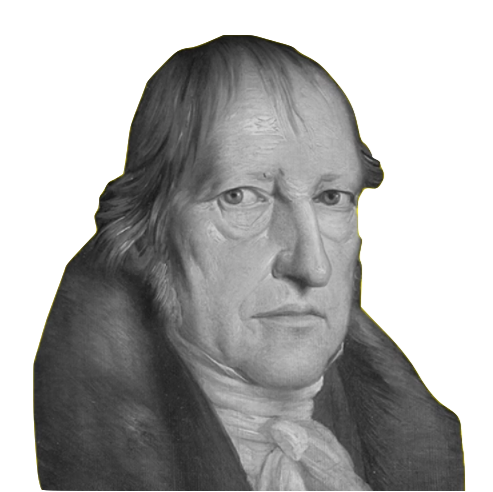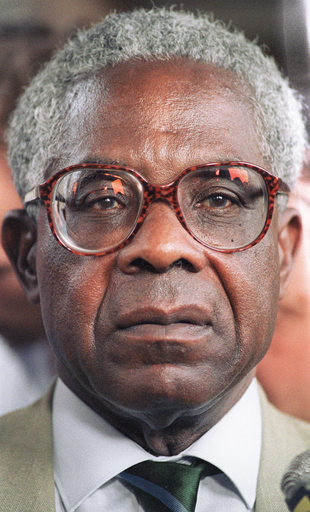自己決定に関する諸国民の権利の歴史
History of The Right of Nations of Self-Determination



自己決定に関する諸国民の権利の歴史
History of The Right of Nations of Self-Determination



レーニンの「自己決定に関する諸国民の権 利」(スペイン語:El derecho de las naciones a la autodeterminación, 1914)は、ながく、日本のナショナリストと社会主義/共産主義者の誤訳により「民族自決権」と訳されてきたが、この民族と は、国民解放戦線(National Liberation Front)の誤訳である民族解放戦線とともに「国民=ネーション」のことである。また、この表題にみるように、もともとは、集団としての共同体成員であ る国民による自己決定権のことであり、個人の自己決定権のことではない。ただし、個人によ る自己決定は、「他人に迷惑をかけない限り人間は何をしても自由 である」J.S. ミル『自由論』から由来する考え方は、行動の自己決定に主眼が置かれる のに対して、レーニンの自己決定は、未だ集団的権利を与えられていない「ある国民=ネーション」の集団的諸権利、とりわけ自分たちを統治する権能としての 国家機能の獲得を意味しているように思われる。
レーニンは、「ある国民=ネーション」が 他の国民による共同体から分離して国民国家をつくりだす権利のことを、この自己決定権のこととした。な お、「ネーションの起源」はより古い」
ヘーゲルとレーニンにからみ合わせて、植 民者は決して自己決定を容認しないという強い主張を下記のエメ・セゼールの引用から理解することができ る。
"This influence of
politics upon culture is expressly recognised
by
Hegel in the Lessons from the philosophy of history when he writes this
innocent little phrase which Lenin, however, must have considered
less innocent than it appears as he quoted it and underlined it
twice in the Philosophical Notebooks :/ "The importance of nature
should be neither over- nor underestimated;
certainly the gentle sky of Ionia greatly contributed to
the grace of the poems of Homer. Nevertheless, it cannot isolation
produce Homer. Nor does it always produce them. No bard
arises under Turkish domination."/
This can mean only one thing, namely, that a political and
social system that suppresses the self-determination of a people
thereby kills the creative power if that people." (Cesaire 1956:
196)
「このような政治が文化に及ぼす影響は、 ヘーゲルが『歴史哲学講義』の中で、次のような無邪気なフレーズを書いたときにはっきりと認識されている。「とはいえ、自然が孤立してホメロスを生み出すことはありえない。また、自然が常にホメロスを生み出すわけでもない。トルコの支配のもとでは、いかなる吟遊詩人も生まれない」/これが意味すること はただひとつ、すなわち、民衆の自己決定を抑圧する政治的・社会的システムは、それによってその民衆の創造力を殺すということである」(Cesaire 1956: 196)。
****
以下は、その歴史的経緯である(ウィキペ ディア「民 族自決権について」による)。
1896 第二インタナショナル・ロンド ン大会、すべての国民=ネーションの自決権を承認する決議(full autonomy of all nationalities)を採択。
ロシア・ドイツ・オーストリアに分割されていたポーランドに関し、ローザ・ルクセンブルクが独立の要求を否定し、ポーランド社会党がそれに
反論して論争が起こったことを受けてのもの
1903
ロシア社会民主労働党は第2回党大会において、すべての民族に国民の自決権を認める綱領を採択。レーニン「「われわれの綱領における国民問 題」でプロレタリアートの階級闘争の利益に自己決定の要求を従属させなければならない、と主張。ポーランド社会民主党は、ポーランド社会党との対抗で自己 決定権を認めない立場を取っていたため、ロシア社会民主労働党に対して自己決定権の条項を綱領から削除するよう要求し、拒否されて辞去する。
1906
ロシア社会民主労働党ストックホルム大会でロシア社会民主労働党の自治的構成部分として、ポーランド社会民主党が加入する。
1908-1909
ポーランド社会民主党のローザ・ルクセンブルクは1908年から1909年にかけて論文「国民問題と自治」をまとめ、その中で、自己決定権
を否定した——プロレタリア間の諸国民の間の連帯を否定するものだからだ。
1914 レーニンは、ルクセンブルグに 反対するために「自己決定に関する諸国民の権利」を認めるにいたる。
| 以下の内
容は、(ウィキペディア「国
民の自決権について」による)※したがって、引用文中の「民族」はすべて「国民」に置換している。 |
コメント
(池田) |
| 1)商品
生産が完全な勝利をおさめるためには、ブルジョアジーが国内市場を獲得することが必要であり、同一の言語をつかう住民の住んでいる諸地域を、この言語が発達し文献のうちに固定するのを妨げ
ているあらゆる障害をとりのぞいたうえ、国家として結集することが必要である。だから、近代資本主義のこれらの要求をもっともよく満たす国
民国家を形成することが、あらゆる国民運動の傾向である。資本主義時代の典型的なも
の、正常なものは、国民国家である。したがって、国民の自決とは、ある国民が他国民の集合体から国家的に分離することを意味し、独立の国民
国家を形成することを意味している。 |
資本主義の
完成は、国民国家領域において可能になる。そのためには、国民が国家領域を形成する統一した主体=主権者になることが必要がある。 |
| 2)国
民運動の見地から見て根本的に異なっている資本主義の二つの時期を厳密に区別する必
要がある。一方では、それは、封建制度と絶対主義の崩壊の時期で
あり、ブルジョア民主主義的な社会と国家の形成の時期、すなわち、国民運動がはじめて大衆的なものになり、出版物や代議機関への参加などによってすべての
階級をどのみち政治にひきいれる時期である。他方では、それは、立憲政体をうちたててからすでに久しく、プロレタリアートとブルジョアジーの敵対関係がつ
よく発展した、まったく形成されおわった資本主義諸国家の時期であ
りーー資本主義崩壊の前夜と呼ぶことのできる時期である。第一の時期にとって典型的
なのは、国民運動の目ざめであり、一般に政治的自由のための、とくに国民の権利のための闘争とむすびついて、もっとも数多い、もっとも「動
きだしのにぶい」層としての農民が、国民運動にひきいれられることである。第二の時
期にとって典型的なのは、大衆的なブルジョア民主主義運動のないこと、発展した資本主義が、すでに完全に商品取引のなかにひきいれられた諸国民をますます
接近させ、ますます混合させながら、国際的に一体となった資本と国際労働運動との敵対を前面におしだすことである。 |
2つの異
なる時間的位相のなかに資本主義を位置付ける。 2)資本主義国家時期では、資本と国民が接近し、大衆ブルジョア民主主義運動がみられもしないし、資本主義は国際労働運動との敵対をむき出しにする。 |
| 3)西
ヨーロッパ大陸では、ブルジョア民主主義革命の時代は、かなり限られた時期、すなわ
ち、ほぼ1789年から1871年にわたっている。この時代こそまさに、国民運動と国民国家創設の時代であった。東ヨーロッパとアジアで
は、ブルジョア民主主義革命の時代は、1905年にはじまったばかりである。ロシアが隣接諸国とともに、この時代を経過しつつあるからこそ、われわれは、わが綱領のなかに、国民自決権についての一条項を必要とする。 |
西ヨーロッ
パの国民国家運動に比して、ロシアには、「国民による自決権」が未だないために「綱
領のなかに、国民自決権についての条項を必要」とする。 |
| 4)1896年のロンドン国際大会の決議は次のように述べている。「本大会は宣言す
る。本大会は、す
べての国民の完全な自決権に賛成し、現在、軍事的、国民的その他の専制の抑圧のもとに苦しんでいる、あらゆる国々の労働者に同情する。本大会は、これらす
べての国の労働者に、全世界の自覚した労働者の隊列に参加して、国際資本主義にうちかち、国際社会民主主義運動の目的を実現するために、彼らとともにたた
かうことを呼びかける」、と。 |
1896年の第二インターでは、国民の完
全の自決権の確立があってはじめて、国際社会民主主義運動が可能にな
るという論理がある。 |
| 5)ロンドン大会に先立って、ポーラン
ド独立の問題が『ノイエ・ツァイト』紙上で討論された。三つの見地が述べられた。(1) 「フラキ」(ポーランド社会党)の見地。ヘッケルは、インタナショナルがポーランドの独立要求
を、その綱領のうちでみとめることを要求した。(2) ローザ・ル
クセンブルクの見地。ポーランドの社会主義者はポーランドの独立を要求してはならないという見地。(3) カ
ウツキーの見地。この見地によれば、インタナショナルは、現在ではポーランドの独立をその綱領の一条項とすることができないが、ポーランドの社会主義者は
この要求をかかげることが完全にできる。国民的圧迫がおこなわれている事情のもとで、国民解放の任務を無視することは絶対にまちがいであ
る。 |
ポーランド独立問題に対する理解とコメン
トでは、カウツキーの見解が一番まともということになる。 |
| 6)インタナショナルの決議にはカウツキーの見地のもっとも本質的、基本的な諸命題が再現されてい
る。すなわち、一方では、あらゆる国民にたいする完全な自決権の、直接の、曲解の余地のない承認。他方では、労働者にたいする階級闘争の国
際的統一についてのおなじく明確な呼びかけ。 |
カウツキーの見解は、第二インターの見解
と同じである。 |
| 7)1903
年のロシア社会民主労働党第二回大会では、国民自決権の承認に関する綱領の条項は綱領委員会で議論された。ポーランド社会民主党の代表者はそこで国民自決
権の承認に反対し、容れられなかったため、大会から退場した。ポーランド社会民主党は1906年に党に加入したが、そのときにもそのあとにも綱領の修正を
要求していない。 |
ポーランド社会民主党は1903年時点で
も自決権の承認には決議していない。 |
| 8)大ロシア人的国民主義は、あらゆる
他の国民主義とも同じように、ブルジョア国でどの階級が首位をしめるかにしたがって、いろいろの局面を経過するであろう。1905年まで、われわれのとこ
ろに見うけられたのは、ほとんど反動勢力の国民主義だけであった。革命後には、国民主義的自由主義派が生まれた。しかし今後、大ロシア人の国民主義的民主主義派が発生することは避けられない。1905年以後につよ
く現れてきた被抑圧国民のあいだでの国民主義の勃興は、かならず、都市と農村における大ロシア人の小ブルジョアジーの国民主義をつよめるで
あろう。 |
「1905年以後につよく現れてきた被抑圧国民のあいだでの国民主義の勃興は、かならず、都市と
農村における大ロシア人の小ブルジョアジーの国民主義をつよめる」 |
| 9)このような事情は、ロシアのプロレタリアートに対して、二重の任務、もっとただしくいえば二面的な任務をあたえる。
すなわち、第一に、あらゆる国民主義、なによりも大ロシア人的国民主義とたたかうこ
と、一般にあらゆる国民の完全な同権をみとめるだけではなくて、国家
建設の点での同権、すなわち国民自決権、分離権をみとめること。つぎに、それと同時に、すべての国民のあらゆる国民主義との闘争を有利にすすめるために、ブルジョアの国民的分立の傾
向に反対して、プロレタリアの闘争とプロレタリアの諸組織の統一を擁護し、それらを国際的統一体に緊密に結合するようにたたかうこと。 |
レーニンは、ロシア・プロレタリアートに
矛盾する2つの要求をする;1)あらゆる国民主義、なによりも大ロシア人的国民主義
とたたかえ、そのために、国家建設の点での同権、すなわち国民自決
権、分離権をみとめよ2)すべての国民のあらゆる国民主義との闘争を
有利にすすめるために、ブルジョアの国民的分派確立の傾向に
反対し、プロレタリアの闘争とプロレタリアの諸組織の統国際的統一体化に
働きかけよ。 |
●先住民/先住民族の自己決定権
1970年代以降、先住民/先住民族を包摂する近代国家では、先住民集団じしんの、(部分的な)司法権、文化表象権、統治権など、すなわち 「先住民の自己決定権」を容認する方向に国家運営の舵を切り替えている。しかしながら1980年以降で、先住民地域での天然資源の採掘などの権利問題が生 じると、その採掘権(コンセッション)を再度国家に領有しようと、地元の先住民と流血の紛争がおこるようになる。2007年の国連の「先住民の権利に関する国際連合宣言」(UNDRIP) 以降は、先住民/先住民族の集団としての自己決定権は、より広く認められることとなった。
リンク
文献
その他
Copyleft, CC, Mitzub'ixi Quq Chi'j, 1997-2099
☆
 ☆
☆